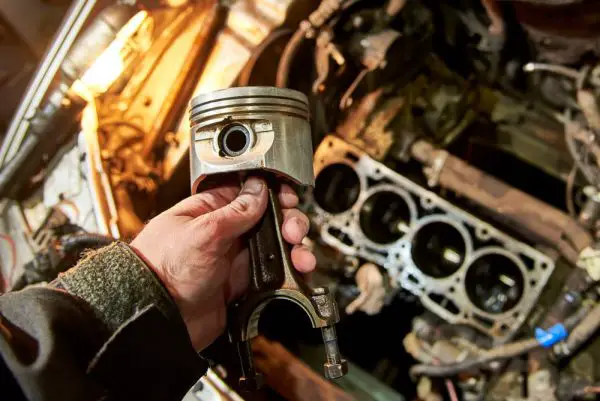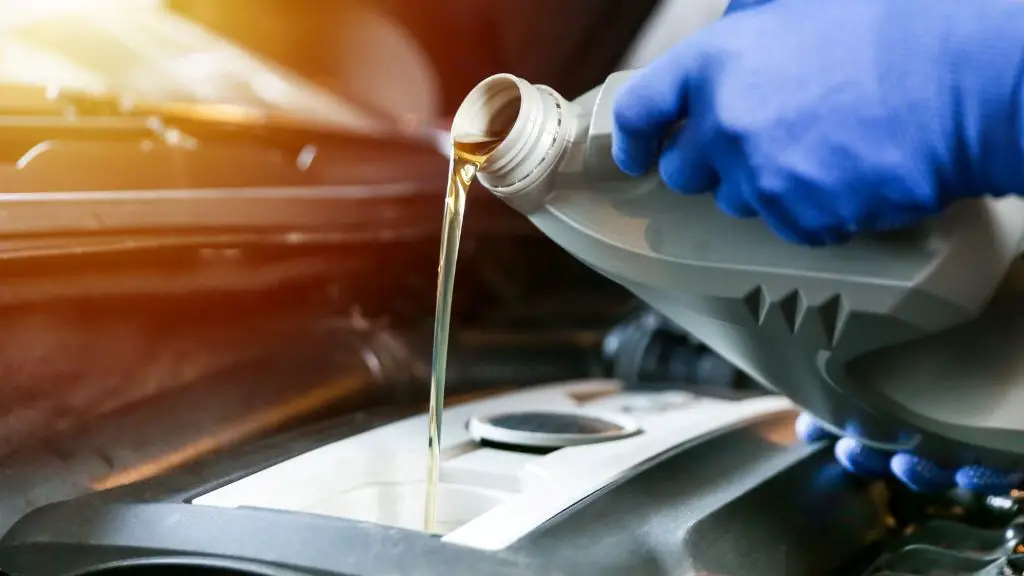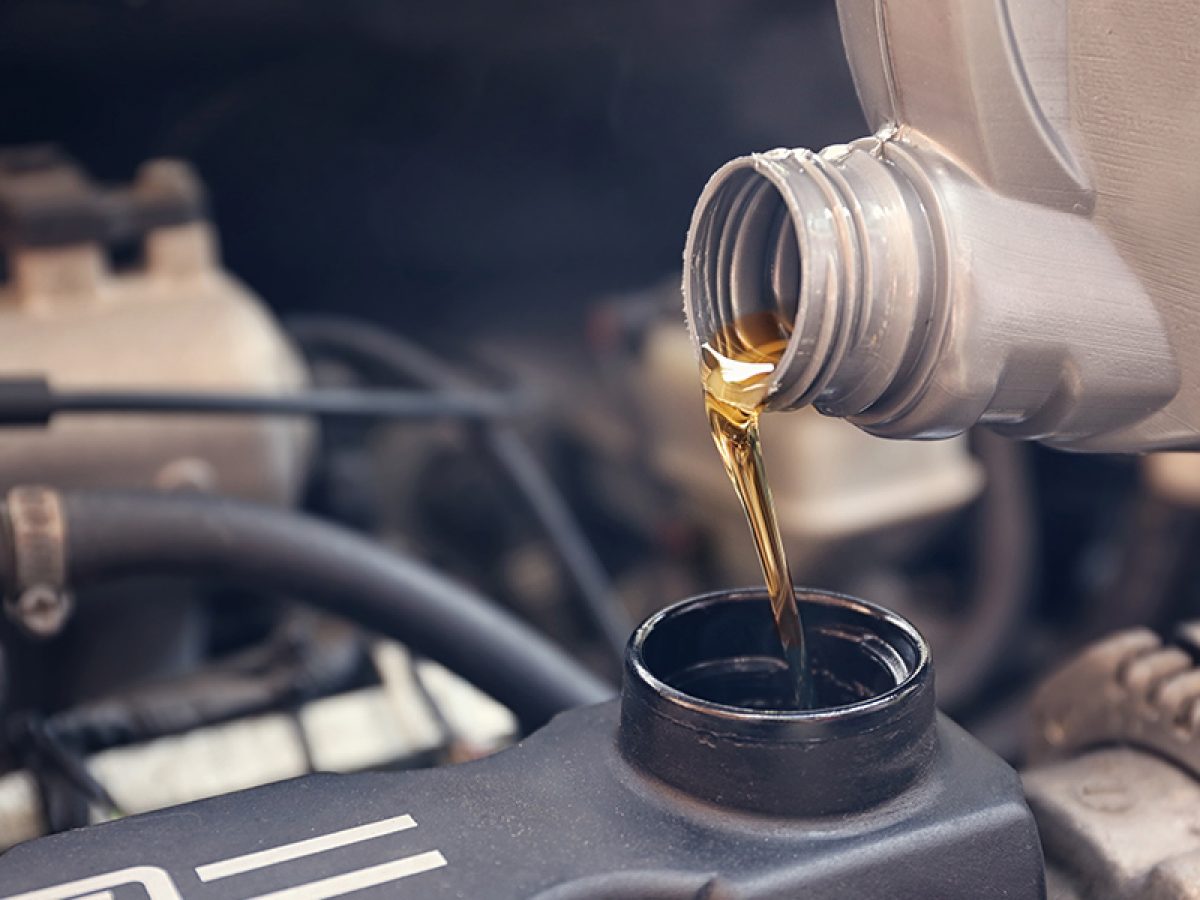Ever glanced at your oil gauge and noticed it’s dipping faster than it should? It’s a concern that many car owners face, but understanding why your car might be consuming oil at an alarming rate can help you address the problem promptly. Let’s delve deep into the possible reasons behind this issue and how you can slow down or put a final stop to your car oil consumption.
Understanding Car Engine Oil Consumption
Oil is the lifeblood of your engine, ensuring all its moving parts are lubricated and running smoothly. Under normal conditions, engines do consume a small amount of oil as part of their operation. However, excessive oil consumption indicates underlying issues that need to be addressed.
Why is my Car using up Oil so Fast?
Here are the common reasons why your car is consuming engine oil so fast.

1. Engine Wear and Tear
As engines age, their internal components can wear down. Piston rings and cylinder walls are particularly prone to wear. When these parts lose their efficiency, they can’t seal the combustion chamber properly, leading to oil leaking into the combustion process and getting burned off.
2. Poor Quality Oil or Wrong Viscosity
Using low-quality oil or one with the incorrect viscosity can accelerate oil consumption. High-quality synthetic oils typically offer better protection and longevity. If the oil is too thin, it can seep through seals and gaskets more easily, leading to higher consumption.
3. Faulty PCV Valve
The Positive Crankcase Ventilation (PCV) valve regulates the pressure and removes gases from the crankcase. If it becomes clogged or faulty, it can cause pressure to build up, forcing oil out of seals and gaskets or even burning it up in the engine.
Potential Mechanical Issues why your Car Consumes too much Oil
1. Worn Out Seals and Gaskets
Seals and gaskets are designed to keep oil contained within the engine. Over time, these components can deteriorate, allowing oil to leak out. If you notice oil spots under your car or see smoke coming from the exhaust, it could indicate a problem with your seals or gaskets.
2. Blown Head Gasket
A head gasket failure can cause oil to leak into the combustion chamber or mix with the coolant. This not only increases oil consumption but can lead to more severe engine damage if not addressed promptly.
Driving Habits and Environmental as a Factors that Causes Fast Oil Consumption
1. High RPM Driving
Driving at high RPMs consistently can lead to increased oil consumption. The engine works harder and hotter, burning more oil in the process. Moderating your driving habits can help in reducing oil usage.
2. Extreme Temperatures
Extreme hot or cold weather can affect oil viscosity and performance. In cold weather, oil thickens and can cause strain on the engine. Conversely, high temperatures can thin the oil, making it easier for it to escape through seals and gaskets.
How can I slow down my Car Oil Consumption?
1. Regular Oil Checks
Checking your oil level regularly is crucial. If you notice the oil level dropping quickly between checks, it’s a clear sign of excessive consumption. Using a dipstick, you can monitor the oil level and its condition.
2. Inspecting for Leaks
Look under your car for any signs of oil leaks. Puddles or spots of oil can indicate a leak from seals or gaskets. Additionally, checking the engine bay for oil residue can help pinpoint the source of a leak.
3. Monitoring Exhaust Smoke
Blue or grey smoke from the exhaust often indicates that oil is burning within the engine. This can be a sign of worn piston rings, valve seals, or other internal issues.
How do you Fix High Oil Consumption?
1. Regular Maintenance
Staying on top of your car’s maintenance schedule can prevent many issues related to oil consumption. Regular oil changes, using the right type of oil, and replacing filters can keep your engine running efficiently.
2. Using High-Quality Oil
Investing in high-quality, synthetic oil can make a significant difference. These oils typically offer better protection and longevity, reducing the rate at which oil is consumed.
3. Addressing Mechanical Issues Promptly
If you suspect a mechanical issue, such as a worn seal or faulty PCV valve, it’s important to address it promptly. Ignoring these issues can lead to more significant damage and higher repair costs down the line.
The Role of the Engine’s Age
High Mileage Engines
Engines with high mileage naturally consume more oil due to wear and tear over time. Keeping a closer eye on oil levels and using high-mileage specific oils can help mitigate this issue.
Engine Rebuilds and Overhauls
In some cases, especially with older vehicles, an engine rebuild or overhaul might be necessary. This process involves replacing worn components and can significantly reduce oil consumption, extending the life of your engine.
Modern Engines and Oil Consumption
Turbocharged Engines
Modern engines, particularly turbocharged ones, are more prone to higher oil consumption. The turbocharger adds extra heat and pressure, which can lead to increased oil usage. Regular maintenance is crucial for these engines to ensure they remain efficient.
Direct Injection Engines
Direct injection engines are designed for efficiency but can also consume more oil. The higher pressures involved in these engines can push oil past seals and into the combustion chamber.
Signs Your Car is Using Too Much Oil
1. Frequent Oil Top-Ups
If you find yourself topping up the oil more frequently than usual, it’s a clear sign that your car is consuming too much oil. Keeping track of how often you add oil can help you determine if there’s a problem.
2. Oil Warning Light
The oil warning light on your dashboard is an indication that your oil level is low. If this light comes on frequently, it suggests excessive oil consumption and should be checked immediately.
3. Decreased Performance
Excessive oil consumption can lead to decreased engine performance. If you notice a drop in power or responsiveness, it could be related to oil issues.
Addressing Oil Consumption in Diesel Engines
Diesel-Specific Issues
Diesel engines have their own set of challenges when it comes to oil consumption. Factors such as turbocharger issues and the quality of diesel fuel can impact oil usage.
Maintaining Diesel Engines
Regular maintenance for diesel engines, including timely oil changes and using high-quality diesel fuel, can help in reducing oil consumption and ensuring the engine runs smoothly.
Environmental Impact of Excessive Oil Consumption
1. Increased Emissions
Burning oil in the engine leads to higher emissions, contributing to environmental pollution. Addressing oil consumption issues can help in reducing your car’s environmental footprint.
2. Waste Oil Disposal
Proper disposal of waste oil is crucial. If you find yourself changing or topping up oil frequently, ensure that the used oil is disposed of responsibly to minimize environmental harm.
Practical Tips to observe to Prevent frequent Car Oil Consumption
1. Avoiding Short Trips
Short trips don’t allow the engine to reach optimal operating temperature, leading to higher oil consumption. Combining short trips or opting for longer drives can help in reducing oil usage.
2. Regularly Checking Oil Levels
Make it a habit to check your oil levels regularly. This simple practice can help you catch issues early and prevent more significant problems down the road.

3. Choosing the Right Oil
Selecting the right oil for your engine is essential. Refer to your car’s manual for the recommended oil type and stick to high-quality brands to ensure optimal performance.
The Importance of Timely Repairs to Prevent Fast Engine Oil Consumption
Ignoring signs of excessive oil consumption can lead to more severe engine damage and higher repair costs. Addressing issues promptly, such as replacing worn seals or fixing leaks, can save you money and extend the life of your engine.
DIY vs. Professional Help
While some oil consumption issues can be addressed with basic maintenance, more serious problems may require professional help. Knowing when to tackle a problem yourself and when to seek professional assistance is key to keeping your car running smoothly.
Conclusion
Excessive oil consumption is a common issue but understanding its causes and addressing them promptly can help you maintain your car’s health and performance. How then do i fix high oil consumption? By observing regular maintenance, using the right oil, and being mindful of driving habits can significantly reduce oil consumption. By staying vigilant and addressing issues early, you can ensure your car remains in top condition for years to come.

